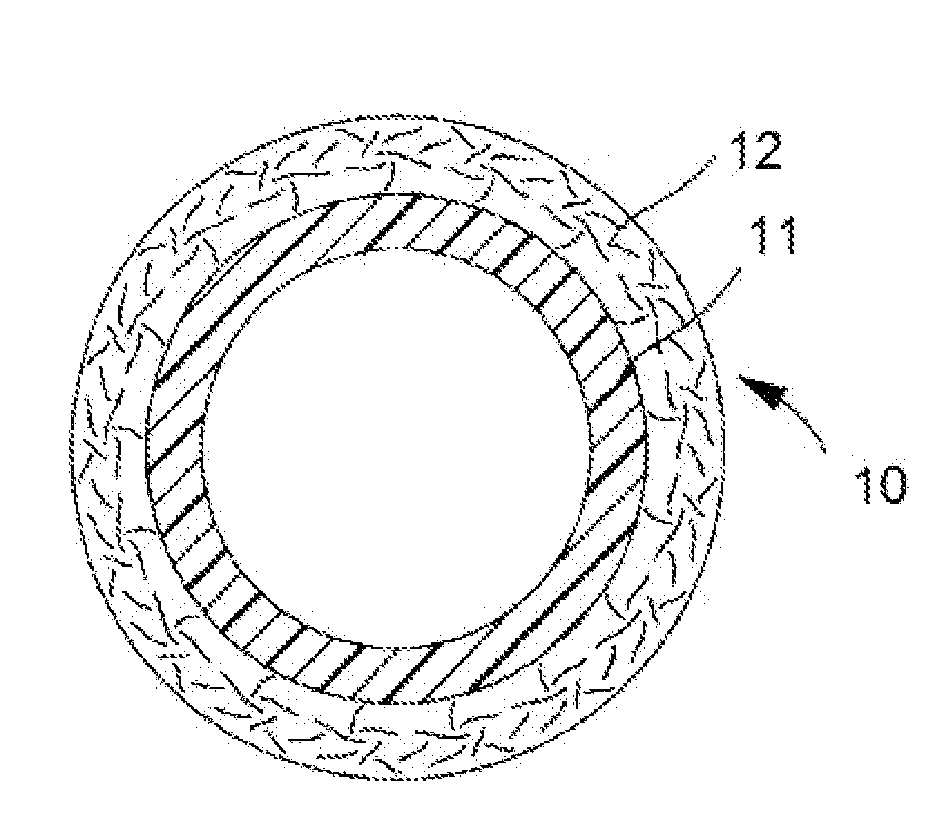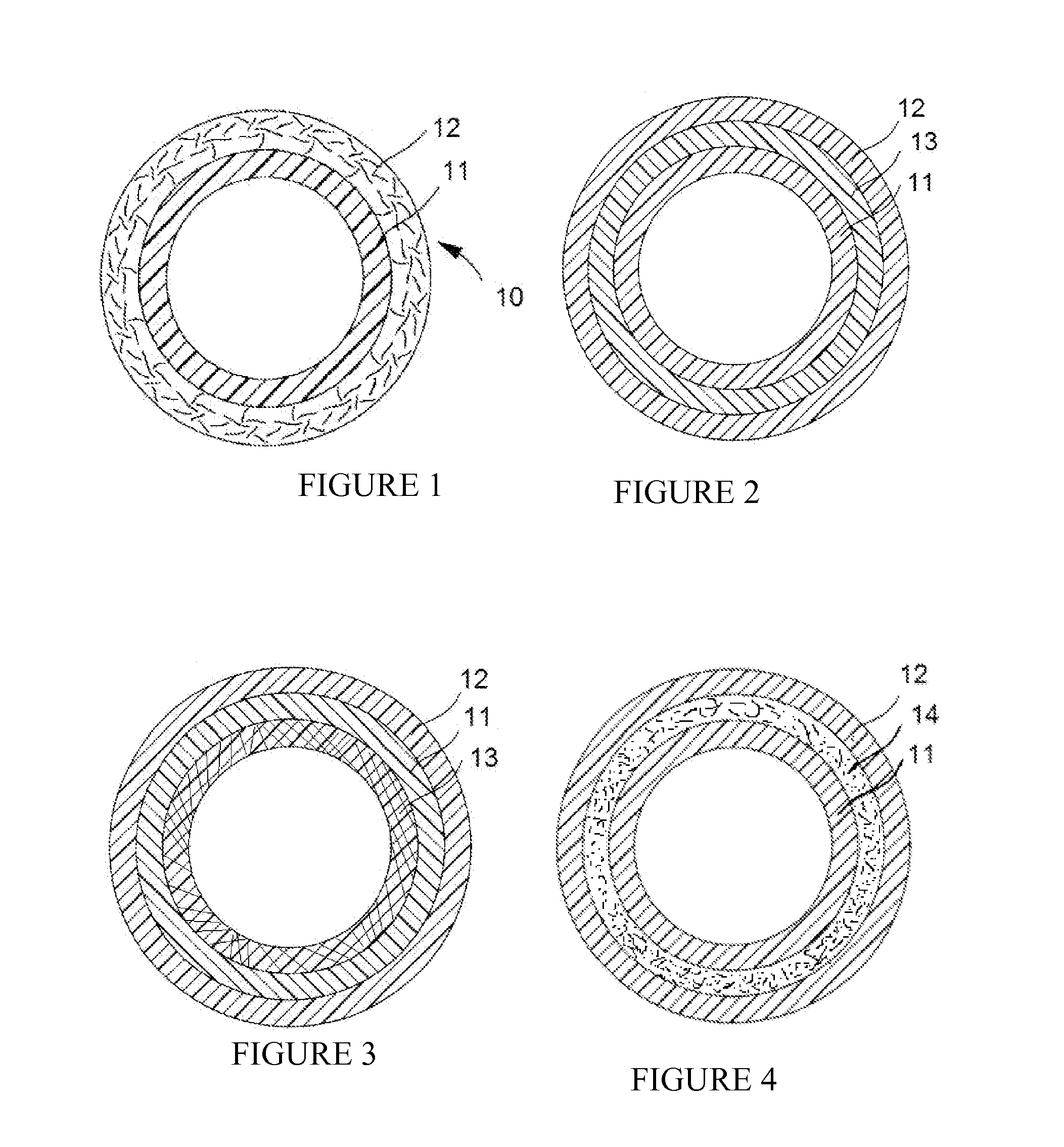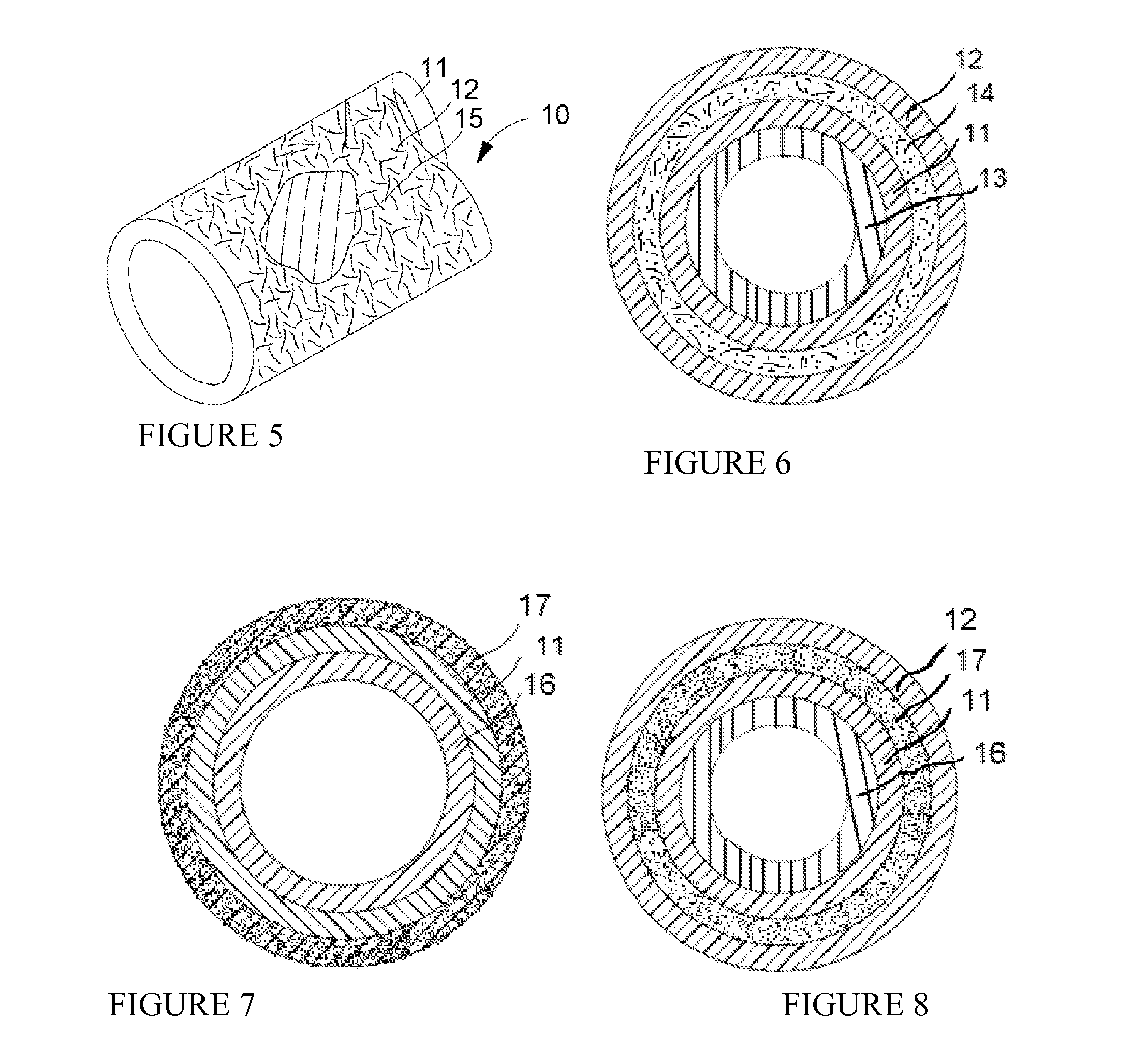Structural Components for Oil, Gas, Exploration, Refining and Petrochemical Applications
a technology of structural components and oil, which is applied in the field of structural components for oil, gas, exploration, refining and petrochemical applications, can solve the problems of corroding fluids, corroding equipment with high organic acid content, and corrosion of metallic surfaces
- Summary
- Abstract
- Description
- Claims
- Application Information
AI Technical Summary
Benefits of technology
Problems solved by technology
Method used
Image
Examples
examples
The Following Illustrative Examples are Intended to be Non-Limiting
[0154]Embodiments of structural components, e.g., pipes, were modeled using finite element analysis (FEA) or predictive models. The predictive model used was a general purpose professional package from Solidworks. The modeled pipes are 8″ ID pipes, comprising glass reinforced epoxy thermoset for the structural composite layer, thermoplastics materials for the corrosion resistant layer, and a fire resistive layer comprising calcium silicate. In the thermal modeling, the corrosion resistant layer is not taken into account as the thermal data is insignificant compared to the thermal data of the structural layer and the fire resistive layer.
[0155]In example 1, the 8″ ID pipe has a structural layer with a thickness of 0.43″ and a fire resistive layer comprising calcium silicate of 2″ thick. FIG. 11 depicts the temperature of the inside of the pipe (ID) as a function of time with a forced temperature of about 1100° C. on t...
PUM
| Property | Measurement | Unit |
|---|---|---|
| flexural modulus | aaaaa | aaaaa |
| flexural modulus | aaaaa | aaaaa |
| wt. % | aaaaa | aaaaa |
Abstract
Description
Claims
Application Information
 Login to View More
Login to View More - R&D
- Intellectual Property
- Life Sciences
- Materials
- Tech Scout
- Unparalleled Data Quality
- Higher Quality Content
- 60% Fewer Hallucinations
Browse by: Latest US Patents, China's latest patents, Technical Efficacy Thesaurus, Application Domain, Technology Topic, Popular Technical Reports.
© 2025 PatSnap. All rights reserved.Legal|Privacy policy|Modern Slavery Act Transparency Statement|Sitemap|About US| Contact US: help@patsnap.com



